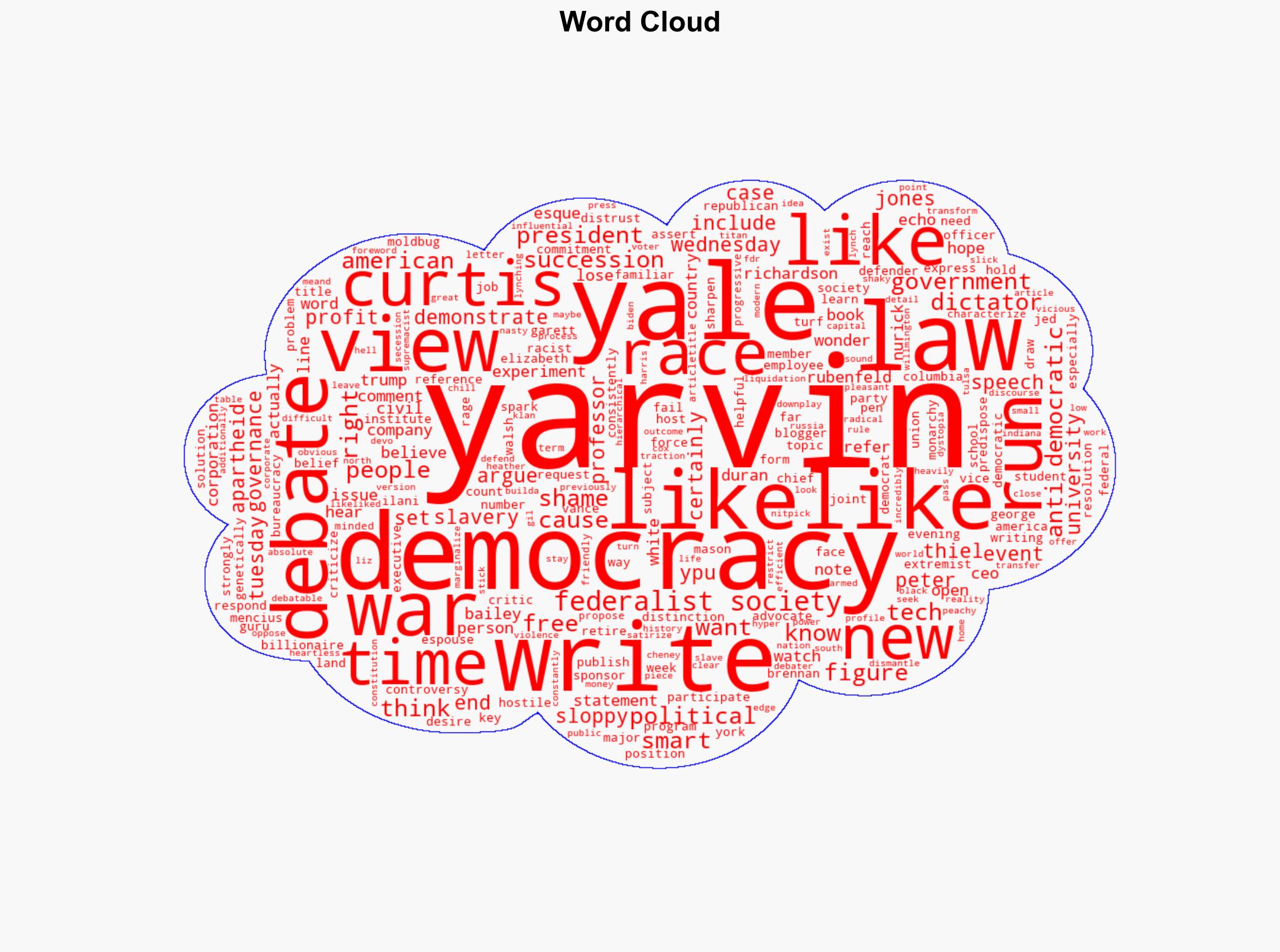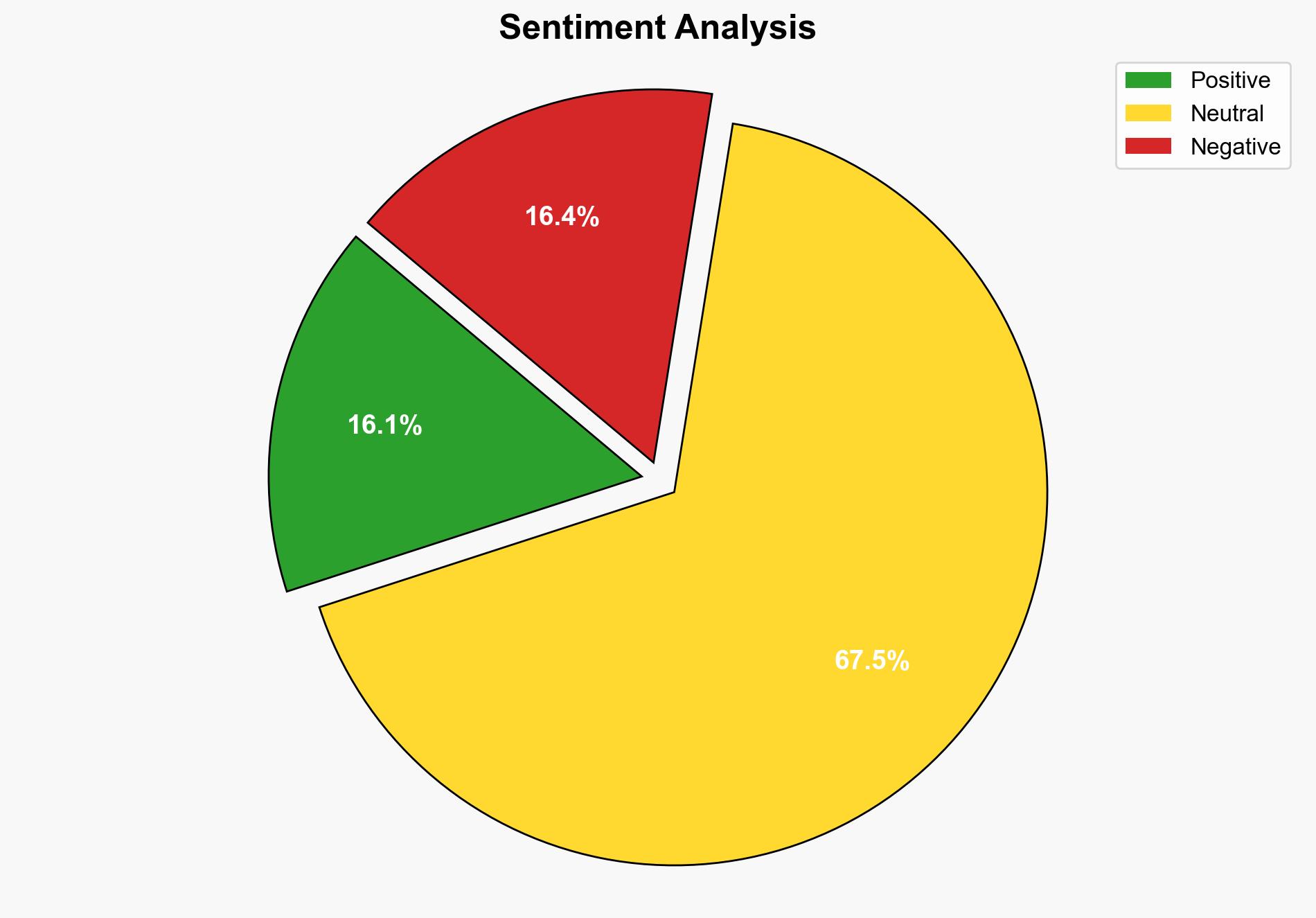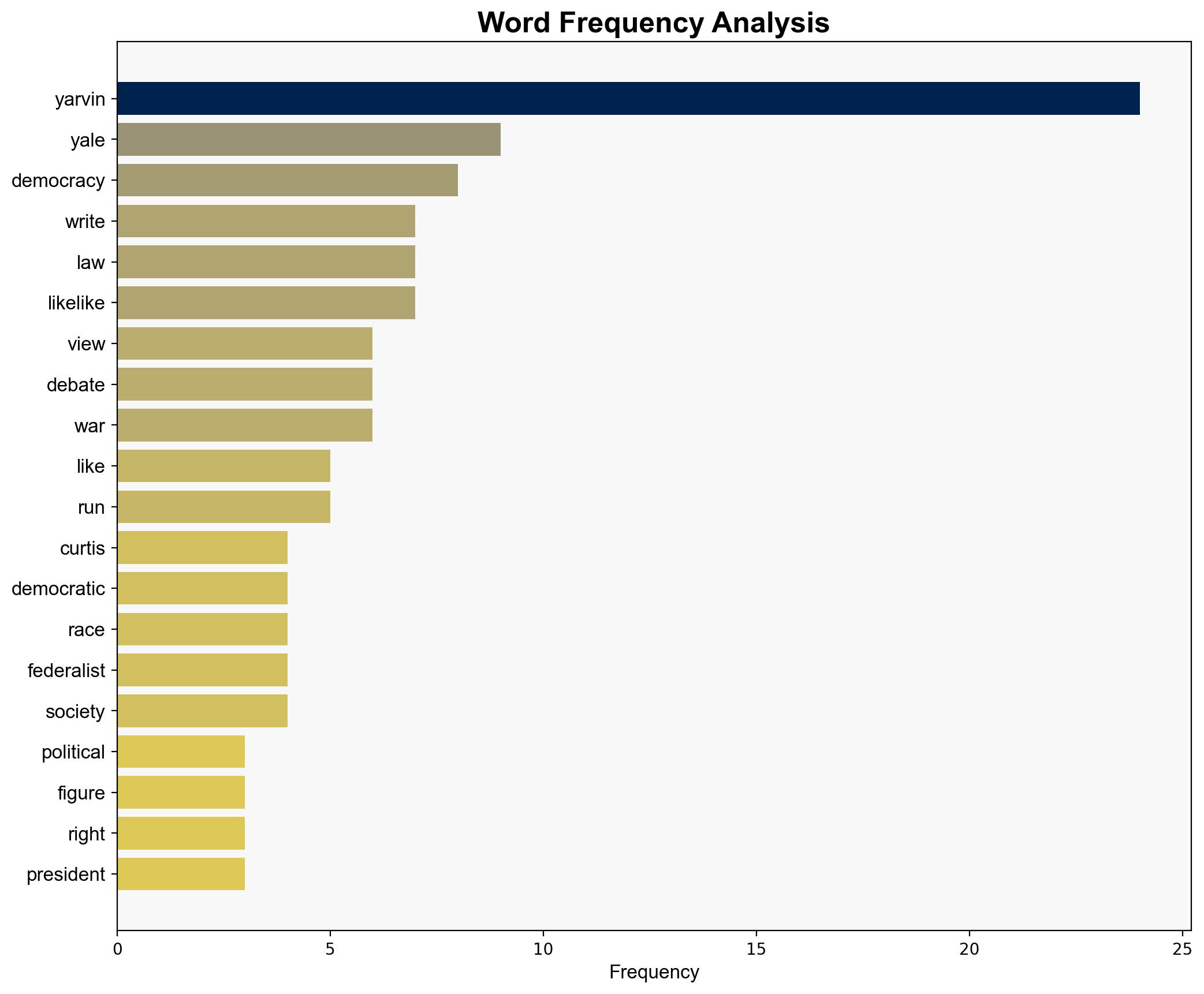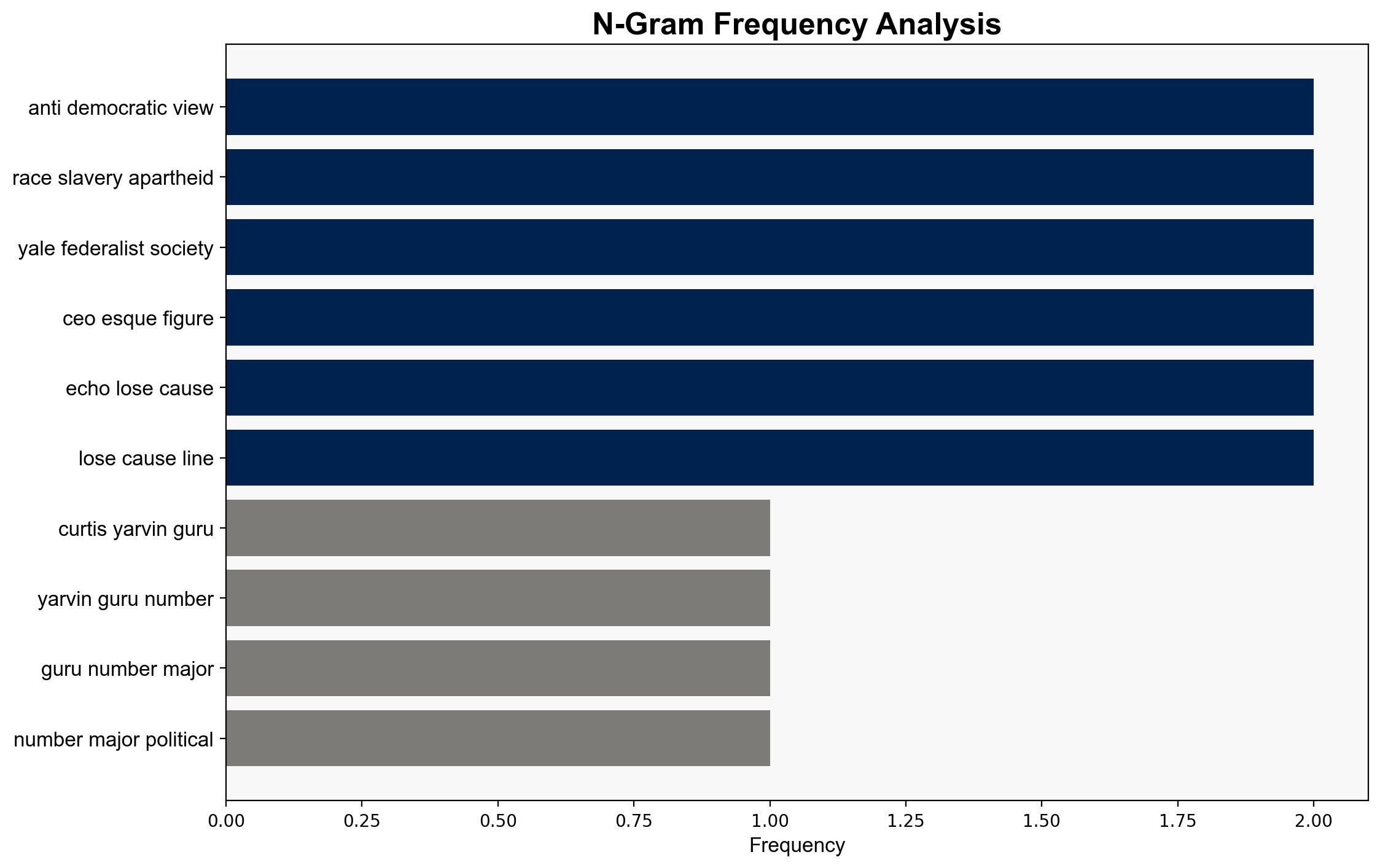Curtis Yarvin is Engaging in Two Debates at Yale – Dianeravitch.net
Published on: 2025-10-07
Intelligence Report: Curtis Yarvin is Engaging in Two Debates at Yale – Dianeravitch.net
1. BLUF (Bottom Line Up Front)
Curtis Yarvin’s participation in debates at Yale highlights the ongoing discourse on democratic principles versus alternative governance models. The most supported hypothesis suggests that Yarvin’s engagement is an attempt to legitimize and mainstream anti-democratic views among intellectual and political circles. Confidence in this assessment is moderate due to the complexity of motivations and potential strategic deception. Recommended action includes monitoring the influence of such debates on public opinion and political discourse.
2. Competing Hypotheses
Hypothesis 1: Curtis Yarvin is using the debates at Yale to promote and legitimize anti-democratic views, aiming to influence political and academic elites.
Hypothesis 2: Yarvin’s participation is primarily a personal intellectual exercise, with limited intent or capacity to influence broader political discourse.
Using ACH 2.0, Hypothesis 1 is better supported due to Yarvin’s history of advocating for anti-democratic ideas and the strategic choice of Yale as a platform, which suggests an intent to reach influential audiences.
3. Key Assumptions and Red Flags
– Assumptions include the belief that Yarvin’s views are inherently influential and that Yale’s platform significantly amplifies them.
– Potential cognitive biases involve overestimating the impact of academic debates on broader political movements.
– Red flags include the lack of direct evidence linking Yarvin’s debates to tangible shifts in political behavior or policy.
4. Implications and Strategic Risks
The debates could normalize extremist views, potentially influencing young intellectuals and future policymakers. This normalization may lead to increased polarization and undermine democratic institutions. Additionally, the debates could serve as a testing ground for anti-democratic rhetoric, refining arguments for broader dissemination.
5. Recommendations and Outlook
- Monitor media and academic responses to Yarvin’s debates to assess shifts in discourse.
- Engage in counter-narratives that reinforce democratic values and highlight the risks of anti-democratic governance.
- Scenario Projections:
- Best Case: Debates lead to robust defense of democratic principles, strengthening public commitment to democracy.
- Worst Case: Yarvin’s views gain traction, contributing to increased political polarization and erosion of democratic norms.
- Most Likely: Limited immediate impact, but potential long-term influence on political discourse.
6. Key Individuals and Entities
– Curtis Yarvin
– Peter Thiel
– Garrett Jones
– Jed Rubenfeld
– Brennan Columbia
– Ilani Nurick
– Elizabeth Bailey
7. Thematic Tags
national security threats, political discourse, democratic principles, ideological influence




